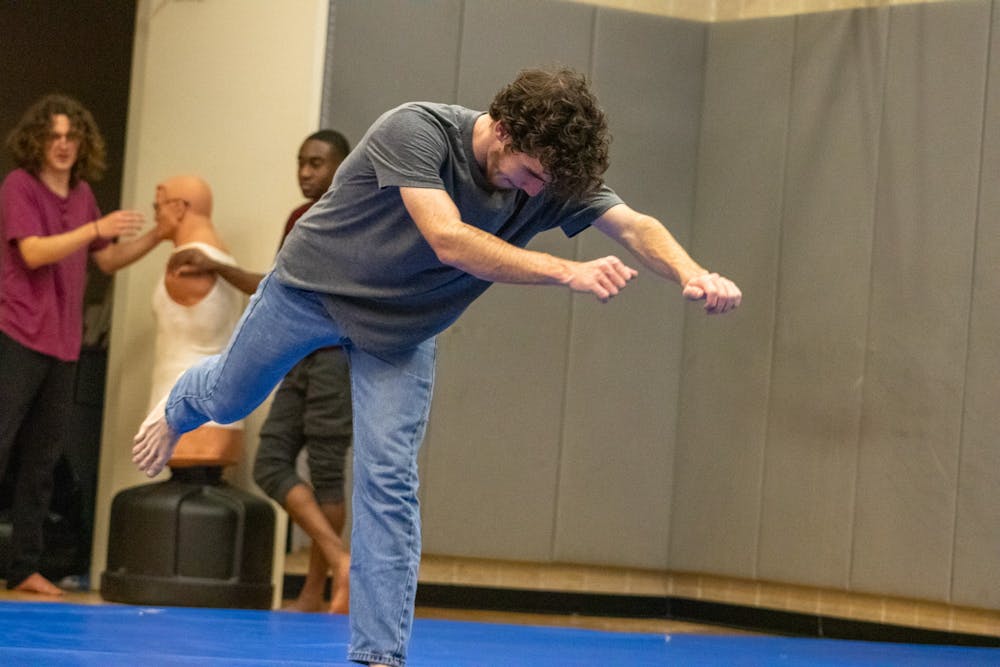Learning a new flip, twist or any type of extreme body movement goes beyond just forcing the physical movement required.
Carolina Movement Club President Xzavian Slaughter said that when learning a new trick, his initial focus is to visualize how the trick would work in his head.
“The first thing we always try to do is break it down into smaller steps,” Session lead Owen Bond said. “For example, if you’re trying to just learn a basic trick like a backflip, we’ll first learn a backwards roll. And then we’ll lift ourselves onto a block and put our hands down behind us and lift our legs over.”
Practicing like this helps members of the club get comfortable with the general motion of a trick with very minimal risk, Bond said.
The club has access to room 116 in the Strom Thurmond Wellness and Fitness Center every Monday and Thursday from 9 to 10:30 p.m., where members can set up panel mats to safely practice their movement.
Not only is there a physical aspect to learning a new trick, but Bond said there's a mental aspect, too.
“The physical part of it does play a big role in developing that mental side,” Bond said.
During the club’s practice, Bond was able to visually describe how the two sides interact using member Noah Parks as he watched him warm up with a trick of his.
Bond said that Parks, prior to learning a trick called “cheat gainer,” had repeatedly practiced swinging his legs while on his back in the same motion they would swing during the flip. Doing this exercise built comfort until one day, Parks tried to combine the swing with a flip onto a mat to avoid injury. He reached a pivotal point in the learning process by landing the trick for the first time.
“That’s what we call breaking a trick,” Bond said. “Once the trick is broken, then you’re at the next stage of trying to land it and then once you’ve landed it, you build up on that. You just really want to build the comfort, and that is done through the repetition and training that we do.”
After reaching that point of “breaking a trick,” members all seemed to agree that it then just came to evaluating how the trick went. From there, it becomes more evident how to perfect the trick.
“It’s not until I throw it for the first time and feel it that I have to say, cool, my leg was out of position here, the twist could’ve been tighter here, my swing through could’ve been more correct here,” Slaughter said. “It’s a lot of awareness.”
The club has focused predominantly on three styles of movement: Parkour, free-running and tricking.
Slaughter and Bond said parkour is an efficient way to get from one point to another via moves like vaulting and wall running. Free-running is like parkour, but without regard for efficiency and with more focus on flips or twists. Conversely, tricking involves doing flips or twists without a set path in mind and typically on flat ground.
The club said it welcomes all types of movement athletes and has no particular requirement on experience. The club’s president and session leads take charge in teaching members moves so that anyone can join and learn about the three styles of movement.
“When I came here, I only knew how to do a backflip,” Parks said. “These guys have taught me a side flip, webster, cart fulls, I've almost got back fulls and standing back fulls. The progression has been really good.”
Bond said that through repeated practice, Parks has learned a significant amount despite just joining the club in the fall 2021 semester.
In the end, Slaughter and the rest of the club have one key thought to keep in mind when learning these styles of movement: “I have to send it, no matter what,” Slaughter said. “That is our motto for progression.”

